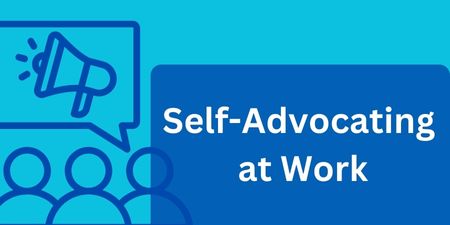How to Set Smarter Goals
Whether you’re looking for work, trying to progress in your career or studying for your degree – it’s important to keep focused on your goals. These goals should be SMART goals, that is – Specific, Measurable, Achievable, Relevant and Time-bound. Below you’ll find a guide to setting SMART goals to help you progress in your career, job search or course.
Specific
When setting goals, being vague makes the task harder. “Be a better student” is an example of a vague plan; there is no clear path to achieve this goal as it is too broad. To succeed at something, the parameters of what success looks like have to be precise. “Complete all of my assignments and submit them by their deadlines”, this goal is more focused. If you complete all of your assignments promptly, you will become a better student; the goal is, therefore, clearer and will have the same effect.
Measurable
Working towards something and not seeing the results of your effort gets very demoralising, really quickly. For all of your goals, it should be clear at what point the goal is accomplished. “Be a better runner” is a goal that is not measurable. How much better? And do you mean better as in faster? Or able to run further? A much better goal would be “Complete a 5km ParkRun in under 40 minutes”.
Achievable
Don’t set yourself up for failure by being unrealistic. Setting unreasonable goals is counter-productive. You are likely to give up and feel discouraged by your goals if there is no way you will be able to complete them. “Tomorrow I will meditate for three hours in silence (having been unable to be present in meditation for 10 consecutive minutes recently)” is an example of an unachievable goal. Look at your routine, find something you would like to change and adapt it. “I will download Headspace now, and tonight I will listen to the shortest meditation exercise after I brush my teeth and before bed”.
Relevant
Think about your long-term goals. What are your values? What do you find fulfilling? Are you setting goals that bring you closer to living your best life? Or are you setting arbitrary goals as a way to measure your progress, punish yourself for shortcomings or purely for the benefit of others? An arbitrary goal might be “learn how to play the piano (because learning to play a musical instrument makes you smarter, and it would be an impressive party trick)”. A more relevant goal would be “learn how to play Claire De Lune by Debussy. (I find playing the piano is beneficial to my mood, I have always loved this lullaby and think playing it to myself will soothe me)
Time
If there’s no deadline, there’s no sense of urgency. While the deadlines you set need to be reasonable, having no timeline for your goal will encourage you to procrastinate. Think about the fastest you could possibly achieve your goal in. Multiply this number of days by 1.2 to give yourself a bit of room for getting distracted, discouraged or preoccupied. “Lose weight” is a poor goal. It is not specific, measurable (there’s no clear marker of when it is achieved. The person may succeed at losing some weight but continually move the goalposts), or time-bound. A better goal would be “I would like to lose 5 kgs in the next 8 weeks”. This goal is specific, measurable, achievable (the maximum rate of weight loss recommended is 1kg per week), relevant (assuming this person’s values include their health and they are in a position where losing weight would improve their overall health) and time-bound.
Evaluate
Okay, so time has run out on your SMARTER goal; what now?
- If you have achieved it, well done! Give yourself a reward; this reward may be anything. (Not all rewards involve spending money, eating food or meeting other people). Take time to reflect on what you did well. Think about what you found challenging; how did you overcome these challenges?
- If you have failed to reach your goal this time, do not beat yourself up. Have a think about things you can do to have a better chance the next time around. Was your goal too ambitious? If so, could you make it a series of smaller goals and celebrate each one you achieve as progress. Was your purpose unclear? Try again with clear steps or actions that will bring you towards succeeding in your goal. How far out were you from achieving your goal? If you’ve made steps towards completing your goal but ran out of time, it may be simply a matter of giving yourself a time extension.
Reward/Repeat
Humans thrive on positive reinforcement. If you’ve done well, you deserve to celebrate your achievement. As mentioned above, rewards can be cheap, expensive or free. They can be big, small or moderate.
So, things didn’t go as planned this time around. It’s a pity, but to fall short of a goal means that you were at least stretching yourself. No one grows without facing a couple of small setbacks and deciding to persist anyway. Reflect on your pursuit, figure out what you can do differently this time and repeat your goal process.
About the Author
.png) Laocín Brennan is GetAHEAD's first summer intern. He was the founder of DCU’s Neurodivergent Society, the first of its kind in Europe. During his time in DCU, he found that his vocation was not in engineering and found himself gravitating towards his volunteer work, which continues to give him purpose, pride and joy.
Laocín Brennan is GetAHEAD's first summer intern. He was the founder of DCU’s Neurodivergent Society, the first of its kind in Europe. During his time in DCU, he found that his vocation was not in engineering and found himself gravitating towards his volunteer work, which continues to give him purpose, pride and joy.
He is passionate about human rights and believes intersectionality is the only way towards a just, equal and idyllic society. Laocín valued his morals from a young age, but only began to become cognisant of ableism in 2013, upon receiving the first of many neurodivergent diagnosises. Now, Laocín is pursuing a career in disability advocacy with vigour in the hopes of being the change he wants to see in the world.







